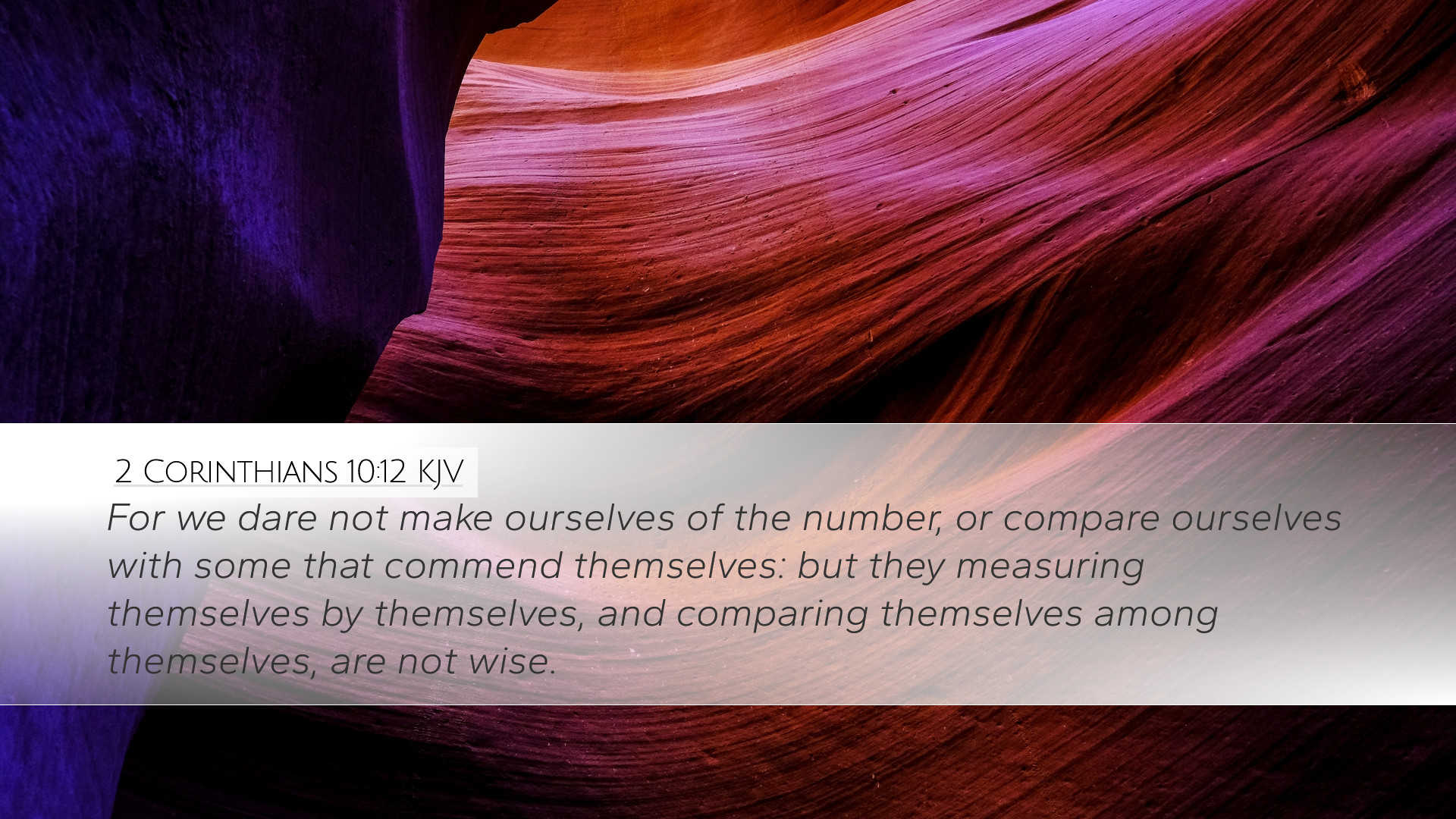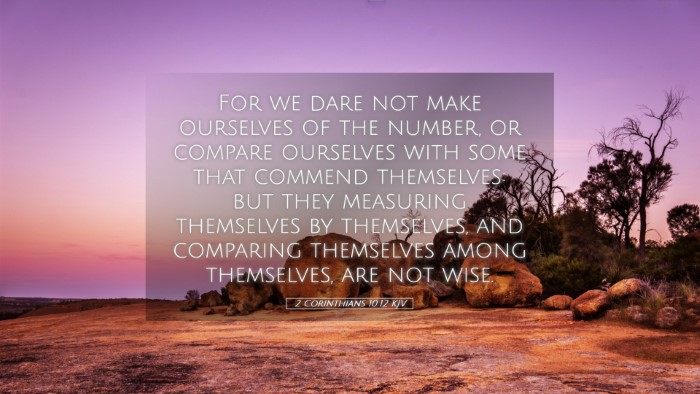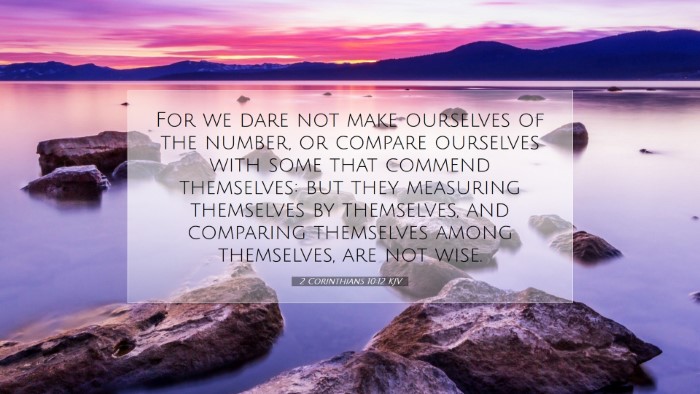Commentary on 2 Corinthians 10:12
Verse: "For we dare not make ourselves of the number, or compare ourselves with some that commend themselves: but they measuring themselves by themselves, and comparing themselves among themselves, are not wise." (2 Corinthians 10:12, KJV)
This verse represents a critical point in the Apostle Paul’s defense of his Apostolic authority and a profound reflection on the nature of self-evaluation and comparison within the Christian community. The commentary that follows synthesizes insights from various public domain sources, offering a comprehensive understanding for pastors, students, theologians, and Bible scholars.
Contextual Overview
The Apostle Paul writes this epistle to the Corinthian Church, addressing issues of authority, integrity, and the right exercise of Christian leadership. His earlier letters have laid the groundwork for his authority, yet false teachers in the church have begun to undermine his position and misrepresent his teachings. Paul aims to clarify his role and the nature of genuine spiritual authority.
Key Themes and Insights
-
Self-Comparison and Its Pitfalls
Paul emphasizes the folly of comparing oneself to others. Albert Barnes notes that self-commendation is a hallmark of those who lack true spiritual insight. When individuals measure their worth against one another, they distort their understanding of godliness and humility.
-
The Standard of Measurement
Rather than using flawed human standards to evaluate spiritual maturity, Paul encourages believers to look to Christ as the ultimate benchmark. Adam Clarke articulates that the criteria for evaluation should not be based on human achievements or accolades but rather on a sincere alignment with the teachings of Christ and His character.
-
The Danger of Pride and Arrogance
Matthew Henry highlights the danger of pride that arises from self-comparison. Those who commend themselves often fall into arrogance, failing to recognize their limitations and need for God’s grace. This serves as a reminder for believers to cultivate a spirit of humility, acknowledging that all accomplishments originate from God's grace.
-
Spiritual Wisdom
Paul asserts that those who engage in self-comparison demonstrate a lack of wisdom. Clarke emphasizes that genuine wisdom comes from an understanding of one’s identity in Christ, not from a superficial assessment based on societal norms or peer comparisons.
Exposition of the Verse
In the opening statement, Paul establishes his boundaries (“we dare not make ourselves of the number”). This careful language reveals his reluctance to engage in superficial practices that the false apostles had adopted. They seek validation through comparison, which is contrary to the teaching of humility.
He follows by noting that some individuals are “measuring themselves by themselves.” This phrase indicates that self-assessment among the Corinthian believers is flawed as it lacks an objective standard. According to Henry, true assessment is to look upward, toward Christ, who is the definitive measure of righteousness.
Paul’s exhortation, “are not wise,” serves as a strong admonition. Wisdom, in biblical terms, frequently ties back to a healthy fear of the Lord and understanding one’s place in relation to divine truth. The act of comparing oneself to others obstructs that divine perspective and renders judgment misguided.
Applications for Pastors and Leaders
-
Authentic Leadership:
Pastors and church leaders are called to humility, guarding against the temptation to elevate themselves over their congregation or compare their ministries to others. True leadership stems from serving and aligning with God's will rather than engaging in self-promotion.
-
Encouraging Self-Reflection:
Church leaders should foster environments in which congregants can engage in honest self-reflection that centers on Christ, allowing room for growth and spiritual maturity rather than comparison to one another.
-
Teaching the Value of Community:
Believers should see the value in community as a source of strength, where mutual support and encouragement replace competitive comparisons. A church rooted in grace and truth becomes a powerful witness of Christ’s love to the world.
Theological Implications
This verse presents significant theological implications regarding justification and sanctification. It raises questions about human nature and the propensity to seek validation through comparisons, which often lead to pride or despair. The sovereign work of Christ becomes pivotal here, as positioning oneself within the framework of His grace leads to true wisdom, unity, and identity.
Conclusion
2 Corinthians 10:12 serves as a profound plea for self-awareness and humility within the body of Christ. Paul’s words continue to resonate today with pastors, students, theologians, and scholars. The call to measure ourselves against God’s truth rather than against one another cultivates a deeper understanding of Christian identity and encourages a love-rich community that exemplifies the character of Christ.
May this insight inspire leaders and believers alike to embody the wisdom found in the Spirit, fostering unity and growth in all areas of life as they journey together in faith.


